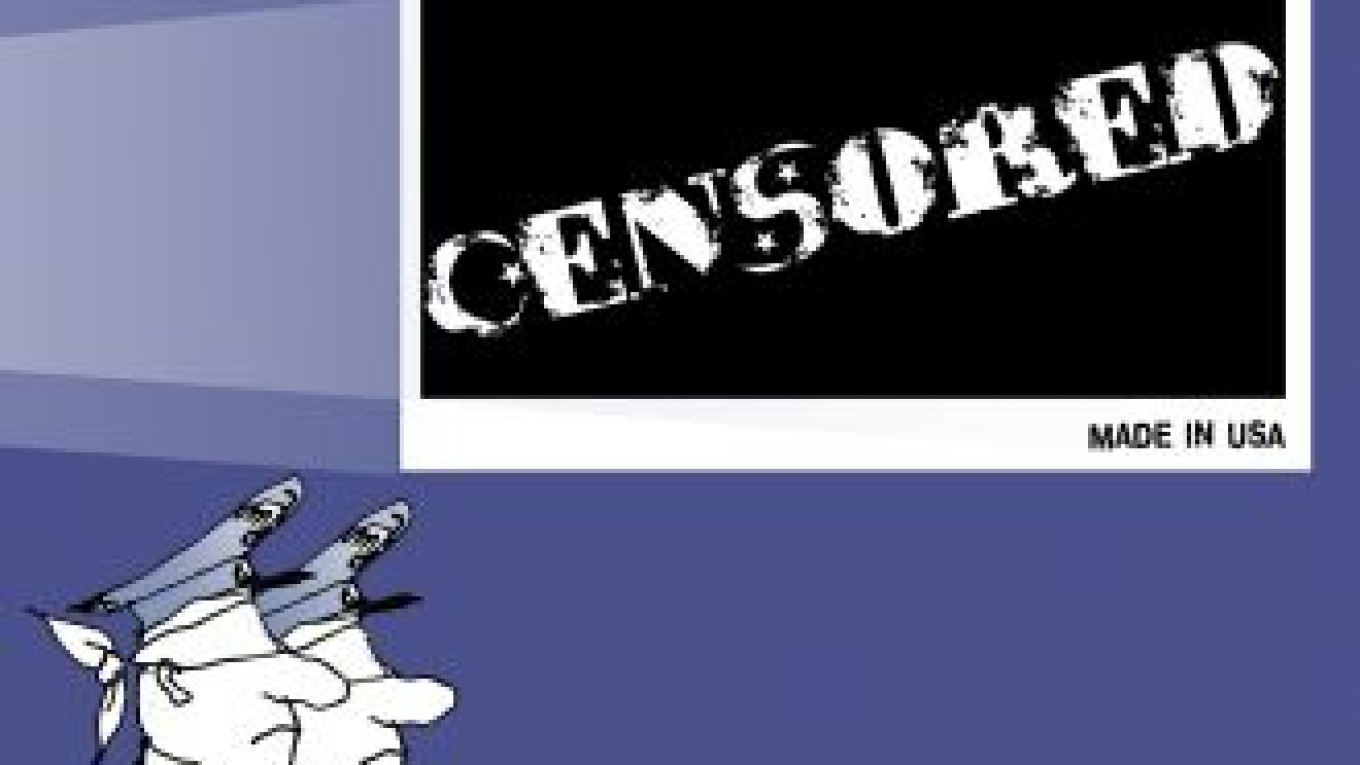As expected, Moscow's Tverskoi court ruled on Monday that the anti-Islam video "Innocence of Muslims" qualifies as extremist under the Criminal Code and thus will be banned across the country, effective 30 days after the ruling. Thus, Russia will soon join Pakistan, Iran and Afghanistan among the world's leading ideological censors.
Although the charges of extremism against the video were initiated by the Prosecutor General's Office, the prosecution admitted during the court proceedings that it had never even watched the video. This was taken right from the old Soviet phrase regarding blind bureaucratic obedience: "I haven't read Pasternak's works, but I know they are awful."
Instead, the prosecution in the "Innocence of Muslims" case relied on expert testimony from the Russian Institute of Culture, which concluded that the video contained religious hatred and thus qualified as extremism.
Apparently, defining extremism in Russia is like defining pornography: The authorities know it when they see it.
Russia's extremism law, passed in 2007, is susceptible to the same problems as the new anti-blasphemy bill, which would carry heavy criminal fines and a three-year prison term for "offending the religious feelings of others." Both pieces of legislation are based on highly subjective notions that can be interpreted arbitrarily and manipulated by the courts and prosecution for political purposes.
Take, for example, the 2010 case against Mikhail Deyev, an opposition member from Orlov whose anti-Putin slogan printed on stickers, "Down with autocracy and succession to the throne!" qualified as extremism under the Criminal Code. He was found guilty of extremism, a criminal offense, and had to pay a fine of 200,000 rubles ($6,400).
At the same time, though, there may be pragmatic motives behind banning the video as well. Russia has already seen small protests against the video in Nizhnevartovsk and Dagestan, where U.S. flags were burned. Although tensions over the video have subsided worldwide, the Kremlin presumably doesn't want to take any chances, particularly in the volatile North Caucasus.
In addition, by showing solidarity with Muslim countries that also banned the video, Moscow can tweak Washington's nose by sending the political message that Russia, too, opposes the U.S. denigration of Muslims and is against the U.S. incitement of violence and religious hatred across the Muslim world.
Meanwhile, earlier this week, the Investigative Committee started an investigation into whether the Moscow exhibit "Dukhovnaya Bran" (Spiritual Invective), which places images of Pussy Riot on icons, violates extremism laws.
Several days before that, the director of a theater in Rostov-on-Don canceled the rock opera "Jesus Christ Superstar" after receiving an anonymous letter from residents claiming that the work "offended their religious feelings." This is a vivid example of what often happens when the state tries to legislate morality: Frightened artists censor themselves to avoid being locked up by a judge who relies on pseudo-expert witnesses and who arbitrarily decides what qualifies as extremist or offensive.
Marat Guelman, a prominent Moscow art gallery director and frequent target of attacks by Orthodox fundamentalists opposed to his nonconformist exhibits, is a vocal opponent of censorship in general and banning "Innocence of Muslims" in particular. This week he co-signed and published an open letter to President Vladimir Putin, writing: "The most evil forces of global terrorism are trying to scare and force their will on modern society. … If [Russian] authorities cave in, it will become the first step toward a disgraceful capitulation in the face of savagery and ignorance."
By banning "Innocence of Muslims," the Kremlin has, indeed, caved in to Islamic fundamentalists. In so doing, Russia has become an important ally of Pakistan, Iran and Afghanistan in their global ideological battle against U.S. infidels.
Michael Bohm is opinion page editor of The Moscow Times.
Related articles:
A Message from The Moscow Times:
Dear readers,
We are facing unprecedented challenges. Russia's Prosecutor General's Office has designated The Moscow Times as an "undesirable" organization, criminalizing our work and putting our staff at risk of prosecution. This follows our earlier unjust labeling as a "foreign agent."
These actions are direct attempts to silence independent journalism in Russia. The authorities claim our work "discredits the decisions of the Russian leadership." We see things differently: we strive to provide accurate, unbiased reporting on Russia.
We, the journalists of The Moscow Times, refuse to be silenced. But to continue our work, we need your help.
Your support, no matter how small, makes a world of difference. If you can, please support us monthly starting from just $2. It's quick to set up, and every contribution makes a significant impact.
By supporting The Moscow Times, you're defending open, independent journalism in the face of repression. Thank you for standing with us.
Remind me later.


